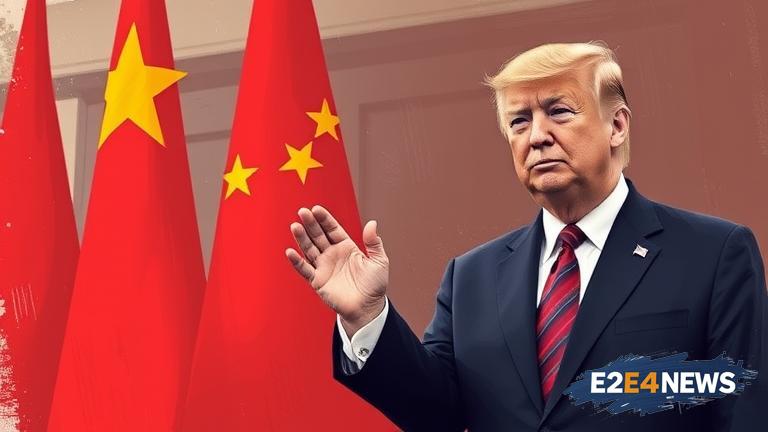Former US President Donald Trump has recently stated that he is likely to visit China within the next year or soon after, a move that has garnered significant attention and sparked intense speculation about the potential implications for US-China relations. This announcement comes at a time when tensions between the two nations are running high, with ongoing trade disputes, security concerns, and competition for global influence. Trump’s comments have been met with a mix of curiosity and skepticism, as many wonder what such a visit could entail and what it might mean for the future of US-China diplomacy. The former president’s relationship with China has been complex and often contentious, marked by periods of cooperation and confrontation. During his presidency, Trump pursued a hardline approach towards China, imposing tariffs and sanctions in an effort to address trade imbalances and security concerns. However, he also engaged in diplomatic efforts, including a high-profile summit with Chinese President Xi Jinping. Despite these efforts, tensions between the two nations have continued to escalate, with issues such as Taiwan, the South China Sea, and human rights remaining major points of contention. A visit by Trump to China could potentially provide an opportunity for the two nations to restart diplomatic efforts and work towards resolving some of these outstanding issues. However, it is also possible that such a visit could be seen as a provocative move, potentially exacerbating existing tensions. The Chinese government has not yet commented on Trump’s suggestion, but it is likely that they will be watching the situation closely. As the world’s two largest economies, the US and China have a profound impact on global affairs, and their relationship is closely scrutinized by nations around the world. The implications of a potential Trump visit to China are far-reaching, with potential consequences for trade, security, and diplomacy. It remains to be seen how this situation will unfold, but one thing is certain – the world will be watching closely. The US-China relationship is a complex and multifaceted one, with a long history of cooperation and competition. As the two nations continue to navigate their differences, the international community will be eager to see how they can work together to address common challenges and promote global stability. The potential for a Trump visit to China has also sparked debate about the role of diplomacy in resolving international conflicts. Some argue that direct engagement between leaders can be an effective way to build trust and resolve differences, while others believe that such efforts are often doomed to fail. As the situation continues to evolve, it will be important to consider the historical context of US-China relations and the various factors that have contributed to the current state of tensions. The rise of China as a global power has been a major factor in the shifting dynamics of the US-China relationship, with the US seeking to maintain its influence and China seeking to assert its own interests. The ongoing trade war between the two nations has also been a significant point of contention, with both sides imposing tariffs and engaging in a series of retaliatory measures. Despite these challenges, there are still opportunities for cooperation between the US and China, particularly in areas such as climate change and non-proliferation. A potential visit by Trump to China could provide a chance for the two nations to explore these areas of common interest and work towards building a more constructive relationship. However, it will be important for both sides to approach such efforts with caution and sensitivity, recognizing the deep-seated differences that exist between them. The international community will be watching closely as this situation unfolds, eager to see how the US and China can work together to promote global stability and address common challenges. As the world’s two largest economies, the US and China have a profound responsibility to lead by example and demonstrate a commitment to diplomacy and cooperation. Only time will tell how this situation will play out, but one thing is certain – the implications will be far-reaching and closely scrutinized by nations around the world. The potential for a Trump visit to China has also sparked debate about the role of personality in international diplomacy. Some argue that Trump’s unconventional approach to diplomacy could potentially be an asset in dealing with China, while others believe that his unpredictability and tendency to provoke controversy could exacerbate existing tensions. As the situation continues to evolve, it will be important to consider the various factors that contribute to the success or failure of diplomatic efforts, including the role of personality, the importance of building trust, and the need for clear and consistent communication. The US-China relationship is a complex and multifaceted one, and there are no easy answers to the challenges that it presents. However, by engaging in open and honest dialogue, and by seeking to understand the perspectives and interests of both sides, it may be possible to build a more constructive and cooperative relationship. The potential for a Trump visit to China is just one aspect of this complex and evolving relationship, and it will be important to approach it with caution, sensitivity, and a deep understanding of the historical and cultural context in which it is taking place.
